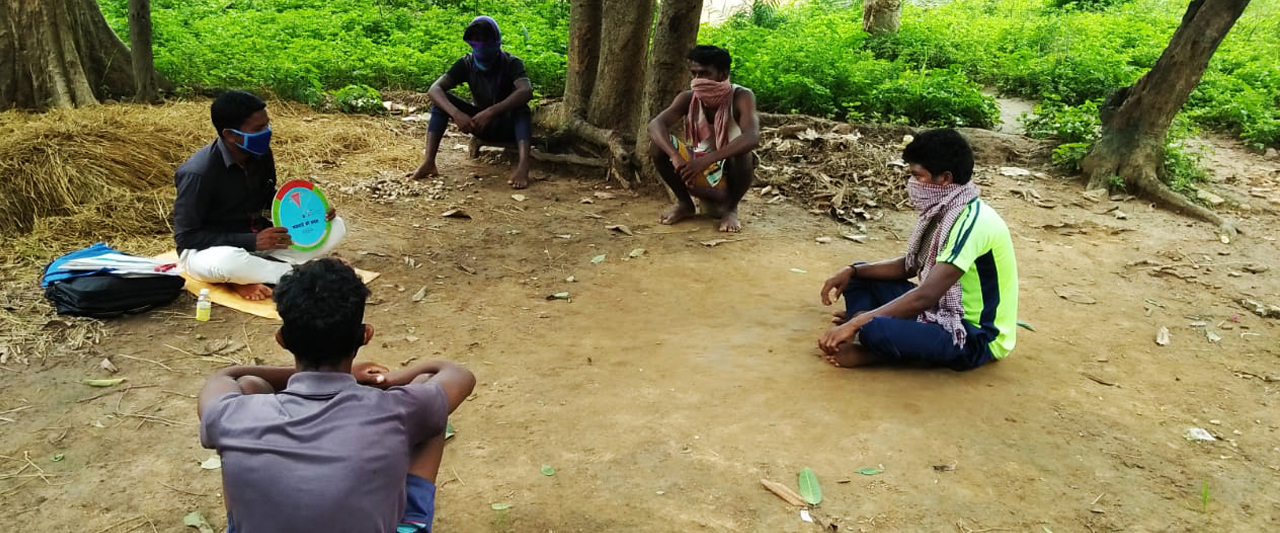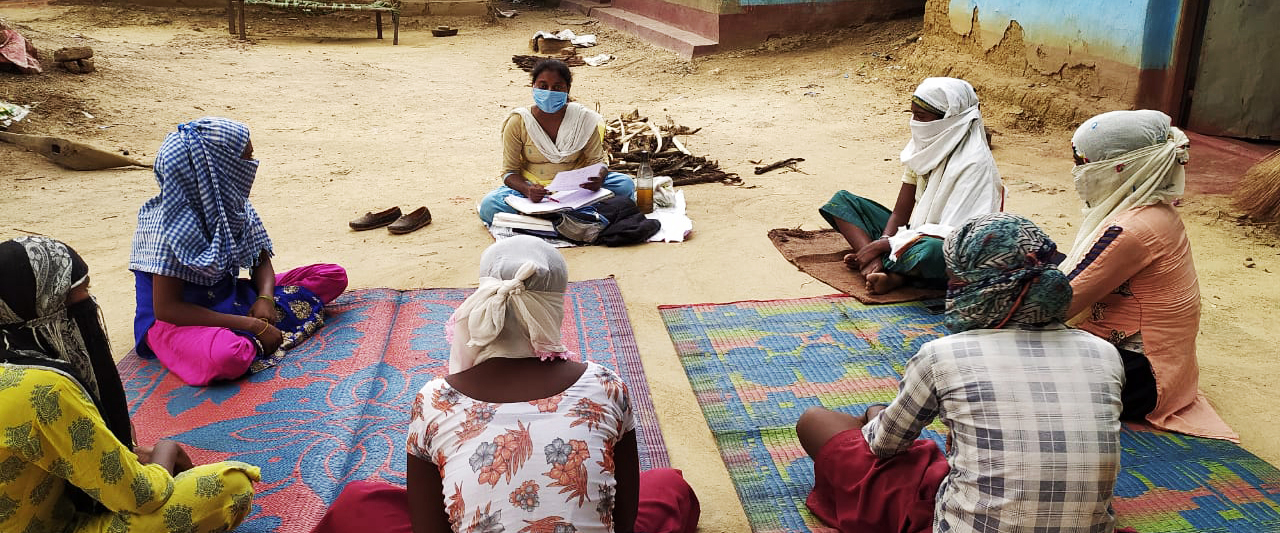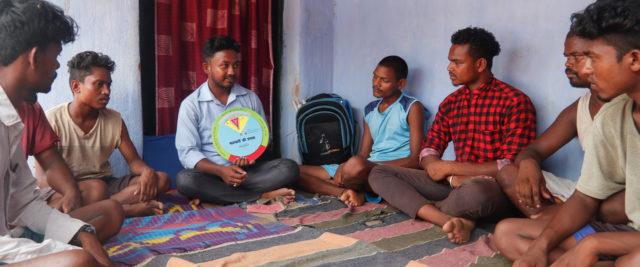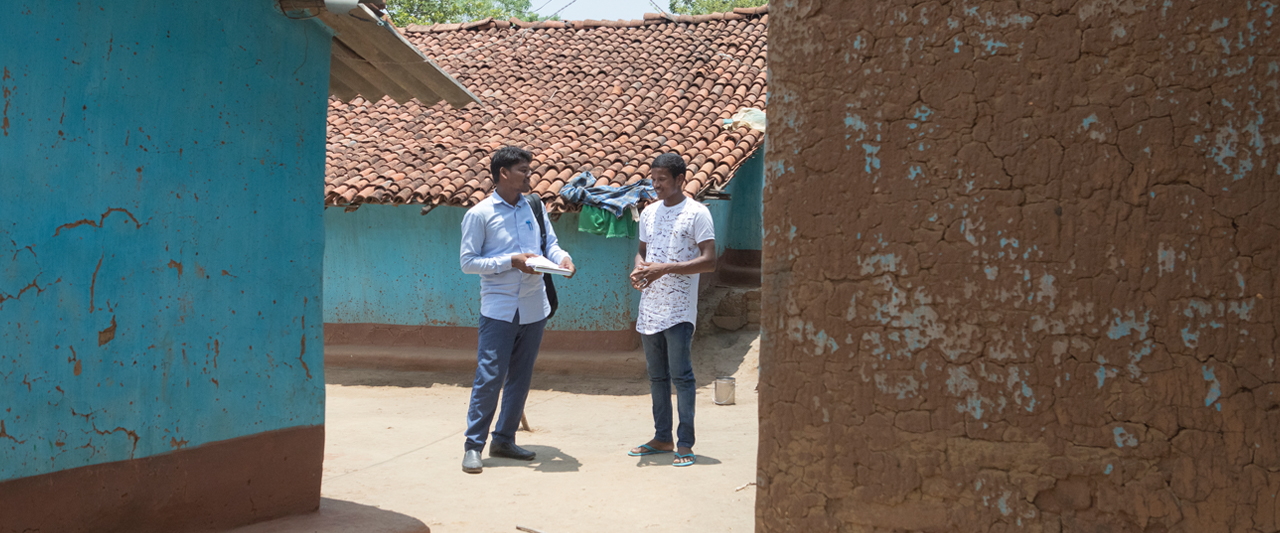August 2020 update:

IDF

IDF
Youth leaders provide crucial reproductive health information during pandemic
Youth leaders trained by Ipas Development Foundation (IDF) in India are getting back to work providing much-needed information on sexual and reproductive health—including on contraception and pregnancy prevention—to the young men and women in their communities. They’re also referring young people for needed care at local health centers.
“In this time of crisis, it is heartening for me to see that men are supportive of the reproductive health needs of their female family members and are approaching me for referrals,” says male youth leader Shashi Bhushan Soy.
Hear more from Shashi Bhushan Soy and from female youth leader Soni Karwa on IDF’s Facebook page.
In rural villages in Jharkhand State, India, men tend to make decisions about family matters. But youth leaders—trained by Ipas Development Foundation (IDF)—are sharing sexual and reproductive health information and, ultimately, chipping away at traditional gender roles.
When IDF began the project, they focused on female youth leaders (read about some of these women here). But a takeaway was that “men play a critical role in this process,” says Akanksha Sharma, IDF manager of strategy and development, noting that it’s “imperative to involve men as partners as well as other family members” to ensure women can access their reproductive rights, including the right to safe abortion. India has one of Asia’s most liberal abortion laws, but many are not aware that the service is legal or how to access it.
Now, IDF is training young men to share sexual and reproductive health information with other men in rural villages through one-on-one and small group meetings. These youth champions are also sensitizing providers to offer youth-friendly services.
“This is the first time we are working on the subject of sexual and reproductive health with men in the community,” says Laxmidhar Singh, IDF assistant manager. “I’ll be happy when every man feels the need to understand sexual and reproductive health and participate in decisions about it. Then the purpose of this project will be realized.”
Below, four youth leaders talk about why they’re committed to sharing sexual and reproductive health information and how their work is making a difference in their community.
Durga Charan Munda
Durga Charan Munda became involved in the project through his sister, who also worked as a youth leader. He works for the locally-based Centre of Social Welfare and Rehabilitation and received training from IDF. Now, he walks miles with his toolkit to inform other men about sexual and reproductive health.
He says that many young men he speaks with do not know about things like how to use contraception or that abortion is legal and available at health centers. Men listen carefully to the information he shares, which helps them be supportive partners.
He has grown personally, too. He is married, but before, he says, “I had no information about sexual and reproductive health—I thought it was only for women, and that there was no place for men.” After becoming involved with the project, he now knows about contraception and how to time pregnancies. “I was very happy to know this kind of information. I felt that this should be known to all people. To my knowledge, a lot of negative thinking and misconceptions have been erased.”
Durga plans to be involved with the project for as long as it continues. “And even after that,” he says, “if I am needed by any young man for any sort of… information, I will be ready.”
Yashoda Pramanik
Yashoda Pramanik, a youth educator on sexual and reproductive health, worked with young women in Jharkhand State for two years but didn’t see change: “In spite of the initiative, [women] could not make their own decisions and exercise their rights.”
So Yashoda and other educators changed how they did things. They began working with men, too. In her community, men typically don’t talk openly about sexual and reproductive health issues, even with their wives. “Now, men are also taking part in the meetings so that they can support us and be happy and make decisions together,” she says. “It will be really good if they become aware of their responsibility toward women and their health.”
Krishna Pingua
Krishna Pingua didn’t know much about sexual and reproductive health before joining the project. Now, he’s equipped with information—and he knows how important it is for men to be informed and supportive partners.
“I came to know that we should discuss what men should do in the society, how they should cooperate with women regarding everything—like when to have a child and when not to, and the use of contraceptives,” he says. He believes that men and women must have equal rights and that both male and female partners should be involved in family planning discussions.
Pingua knows that work must be done to combat myths and misconceptions about sexual and reproductive health, noting that in rural areas, families will not allow their menstruating female family members into the kitchen or room of worship. And many do not know that abortion is legal. “This information is very important,” he says. “No one is aware of this in the village countryside.”
Pingua feels that his work as a youth educator is meaningful. “When I talk to other men about sexual and reproductive health, I feel very proud that through sharing my knowledge, I am giving them the right guidance,” he says.
Pankaj Kumar Pan
Pankaj Kumar Pan used to have a different opinion about men’s participation in sexual and reproductive health issues. “What participation could men possibly have in this, I thought earlier,” he says, noting that when people would go from village to village to inform women and girls about sexual and reproductive health information, he thought it was only for women and girls. “But now it seems that participation of men is very important.”
Before, he couldn’t give friends accurate information, but he’s aware of the facts now. With accurate information about sexual and reproductive health, people’s views can change—something he says he observes in his conversations with local men about sexual and reproductive health. If someone comes to him for help now, “I will help them with the required information. The first thing is to secure the participation of men,” he says. “That inspires me.”



